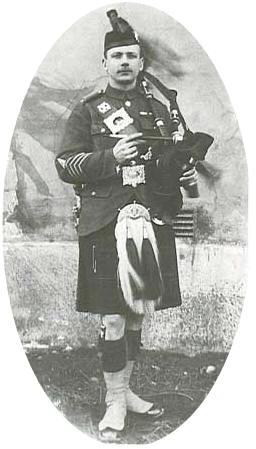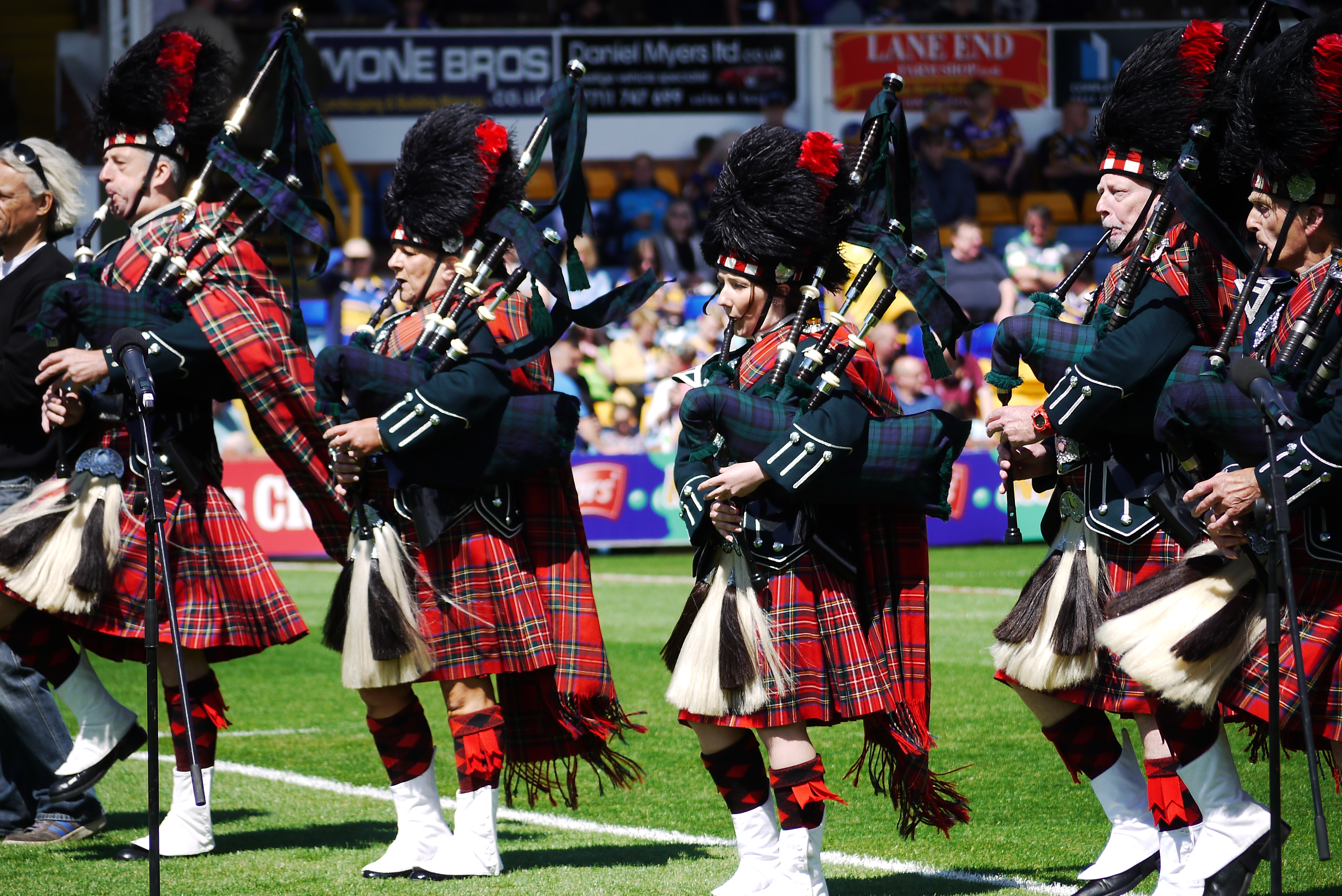About the only thing the various commentators agree on is that this tune was written by PM James Robertson (1886 – 1961), from Banffshire, up in the northeast of Scotland. He was a piper with the 1st Battalion Gordon Highlanders.

As to the date of composing the tune, some accounts have it as 1915 when James was a POW in Germany following the capture of large numbers of the unsuccessful British Expeditionary Force sent to France in 1914. He composed it during a lengthy sentence to solitary confinement, having persistently refused to undertake military-related work for the Germans. He was better rewarded for this stubbornness after the war when he was awarded the Meritorious Service Medal. Other accounts, however, put the date of composition at 1919 when James was serving in Limerick, Ireland, having rejoined his regiment after the war ended. At neither date would life have been much of a picnic, so either could equally well account for the distinctly poignant feel of the piece, especially for a march.
What are ‘The Creeks’? This has also divided opinion. Some relate it to the North American people of that name – properly the Muscogee. They were known as ‘Creeks’ to the British in reference to the topography of their settlements. Some 18th-century Scottish settlers were among the Europeans who intermarried with them, leaving behind names like MacIntosh and MacGillivray, still extant. When they left following British defeat in the Independence War, Creek tradition has it that they left behind a farewell song, sadly lost over the years.
It’s a lovely story, but the most likely Creeks referred to in the title must be those at Portknockie on the Moray coast. They are spectacular rocky inlets, near where James grew up, the sort of place that would ingrain itself into the soul of any child for life.
There is, of course, a song to James’ tune. This dates to 1943 when Hamish Henderson, an Intelligence Corps officer serving in Sicily, heard the pipes and drums of the 153 Brigade playing ‘Farewell To The Creeks’. He was immediately inspired to write lyrics, calling his song ‘The Highland Division’s Farewell To Sicily’. Originally from Perthshire, Henderson was an accomplished poet, song collector and scholar. He was the man charged with accepting the surrender of Italian forces in 1945.
His song contains some wonderful verses. Two of them, in particular, encapsulate with utter accuracy the difference between pipers and drummers to this day:
The pipie is dozy the pipie is fey
He wullnae come roon for his vino the day
The sky o’er Messina is unco and grey
And a’ the bricht chaulmers are eerie
The drummie is polisht, the drummie is braw
He cannae be seen for his webbin ava
He’s beezed himsel’ up for a photy and a’
Tae leave wi’ his Lola his dearie
In the ever-helpful spirit of Stanley Baxter, that great explicator of the Scottish tongue to southerners and the people of Corstorphine and Milngavie, I offer this paraphrase in the Queen’s English:
The piper is rather sleepy today
He has overdosed on the Chardonnay
The Sicilian sky is leaden grey
Giving all a foreboding air.
The drummer is spruce, an immaculate sight
In buckles and belts, he glows like a light
To pose for the camera, at his full height,
To ease his sweetheart’s despair.
(Drummer) George.
Farewell-to-the-Creeks